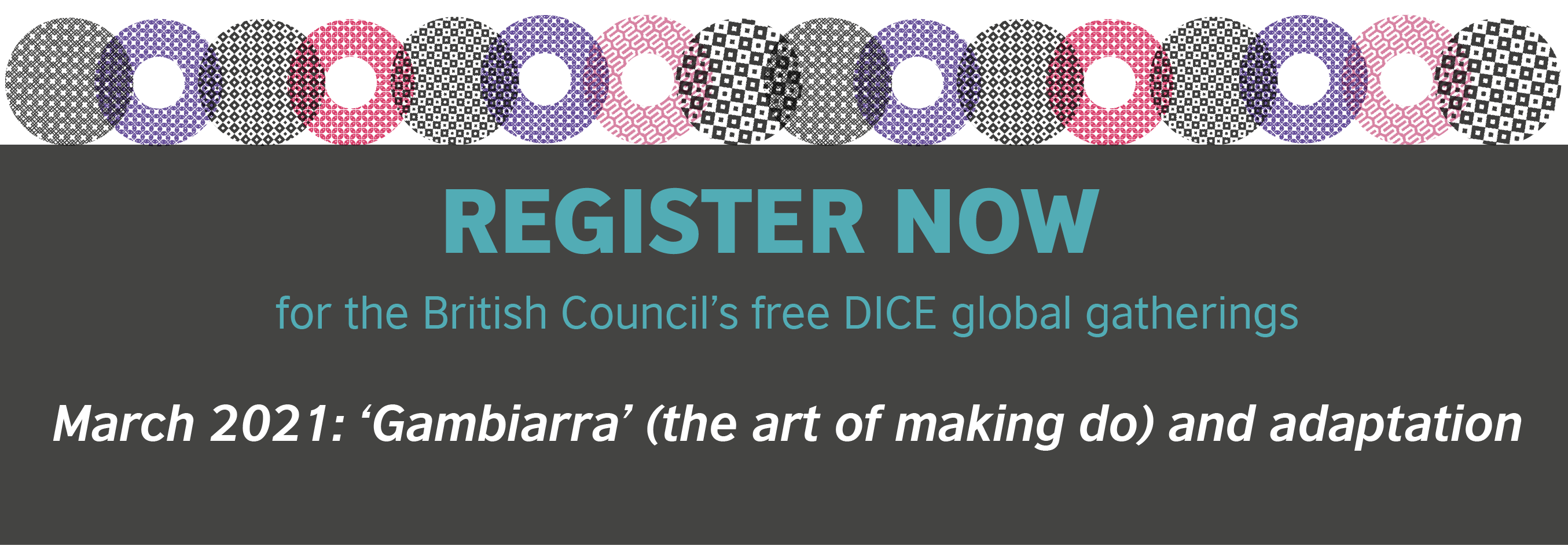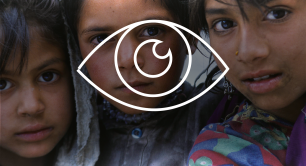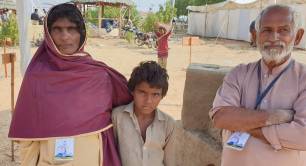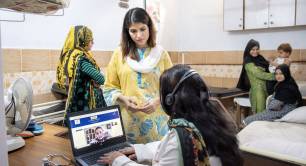Eco-friendly crafts offer route out of poverty at a World Heritage Site
Pakistani villagers are building their own, resilient local economies by creating and selling useful products, such as stoves, tiles and building materials, to their neighbours.

In the developing world, incredible monuments are often to be found in areas of relentless poverty. The flow of tourists and pilgrims acts like a magnet, attracting people from local communities to earn what they can through begging. The dilemma is how to protect the monuments while also protecting the people and offering them a way out of poverty.
An example of this problem – and some possible solutions – can be found on Makli Hill, near the town of Thatta in Sindh province in southern Pakistan. Makli is most probably the world’s largest single necropolis. Covering more than 12 square kilometres, it houses somewhere between 500,000 and 1 million tombs built between the 14th and the 18th centuries. A rich collection of historic structures including tomb enclosures and finely worked tiles and domes are dotted around the site. It was first established by Shaikh Jamali, the Sufi saint, poet and scholar who is buried there.
The years have not been kind to the site. Many monuments have deteriorated and been damaged. Earthquakes and floods in neighbouring areas have taken a toll. There has been soil erosion, vandalism and waste dumping. However, there is also a major effort to conserve and protect the site. In 1981 Makli was designated as a UNESCO World Heritage Site under criteria number four, which classifies it as “an outstanding example of a type of building, architectural or technological ensemble or landscape which illustrates a significant stage in human history”. In 1980 a not-for-profit organisation, the Heritage Foundation of Pakistan, was set up to protect and promote vital cultural sites of this type.
Yasmeen Lari, chief executive of the Foundation, is an architect who is passionate both about conservation and poverty reduction. In the wake of Pakistan’s disastrous 2005 earthquake and the floods of 2010 she designed and promoted what she calls zero-carbon structures – light, low-cost shelters made of bamboo, stone, and lime mud, to house people displaced by natural disasters. Around 42,000 of them have been built. On that project the Heritage Foundation collaborated with Peter Meadows and Dr Azra of the School of Life Sciences at the University of Glasgow, who helped secure humanitarian funding from the Scottish government.
Both the Heritage Foundation and Glasgow University subsequently made a successful application to the British Council’s DICE Fund. They were eager to move forward with their ideas about poverty reduction through a project called Green Skills and Crafts for Livelihoods. It aims to create employment for beggar communities living in eight villages around the Makli site.
A “barefoot methodology”
Yasmeen says she is applying what she calls a “barefoot methodology”.
“The barefoot concept is that we believe in low cost, zero carbon and zero waste,” she says. “Everything we do has to follow that particular dictum. Because we use sustainable materials, costs are very low. The communities can actually afford it and build for each other. So the idea is that the poor must produce – make products – for the other poor. We don’t really worry about the rich or the urban centres at all. They just make things that are of good quality and low cost and which can be used by other poor people. And basically, they are focusing on unmet human needs.
The idea is that people in each of the eight villages receive training and support to make specific, practical products that can be sold for small amounts of money to the other villages and beyond, beginning to create a resilient local economy. Some members of the beggar community are being trained in making prefabricated bamboo structures for dwellings. Others produce briquettes for cooking fires made out of sawdust and cow dung – an attempt to reduce the burning of wood. One village had training to build chulahs – smokeless earthen stoves which use 50-70% less firewood than traditional stoves and therefore help reduce the pace of deforestation. The stoves won a World Habitat prize in 2018 and it is estimated that around 60,000 Pakistani women are now using them. Another village has been trained in the traditional skill of making kashi, a type of glazed ceramic tiles.
An additional “barefoot” product manufactured in another beggar community are terracotta hand basins, which will help improve sanitation. In all these cases efforts are being made to create sustainable income streams. Women are encouraged not only to make and sell chulahs, but also to teach other villagers to make them at a cost per training session of 200 rupees (about £1 or $1.29).
A total of 200 people have been trained under this DICE project, at least 25% of whom have disabilities.
- Meet Pakistan's barefoot entrepreneurs. Pakistani Young Storymaker, Adeel Ahmed, visited Makli to see how this project is changing villagers' lives.
“We’ve made sure that they are inducted into groups in such a way that the team as a whole cannot move forward without their contribution. So, for instance, in the terracotta basins village, the person who cannot walk is in charge of mixing the soil, he does it on the floor, and unless he does that, the next step cannot be taken,” says Yasmeen. She notes that they have also been able to make progress with basic literacy and numeracy by teaching women to sign their names, open bank accounts and manage revenue. “A lot of the women now have identity cards. We are trying to make them efficient and empower them to take care of themselves.”
High hopes for the future
Is the DICE project working? The partner organisations are enthusiastic. The entire beggar community is currently living below the Pakistan poverty line. There have been delays to the programme because of heavy rains, but the project managers nevertheless believe it is realistic to get 50% of the community above the poverty line.
Yasmeen says: “It has been very difficult to wean them away from begging, and I can’t claim we’ve done that, maybe we’ve done it for half of them. But if we can prove through this project that it is possible for beggars to start productive activities, I think this could be a winner in a few years’ time.”
The British Council and the DICE Collaborators (including the organisations featured in this article) invite you to join them in a series of conversations about reducing inequalities, collaborating across borders and oceans, and operating impact-focused enterprises at a time of profound change. These free, monthly live events are co-hosted by impact-focused organisations in Brazil, Egypt, Indonesia, Pakistan and South Africa and their partners in the UK, and draw on their experience of collaborating across borders to address challenges such as youth unemployment, environmental catastrophe, disability rights, and gender inequality in local communities. Find out more and register here.
The DICE Series tells the stories of collaborations which brought together enterprise development experts from the UK with specialists working in five emerging economies – Brazil, Egypt, Indonesia, Pakistan and South Africa – during 2019-20 with the aim of addressing entrenched issues of economic and social exclusion. Read more about the British Council’s DICE programme here.





